Brigade builds bunker with all the mod cons

Members of 3rd Combat Engineer Regiment completed construction of an underground command post during Exercise Brolga Run at Townsville Field Training Area.
CAPTION: An Army soldier exits the underground command post bunker during Exercise Brolga Run at Townsville Field Training Area, Queensland. Story by Captain Brittany Evans. Photos by Trooper Dana Millington.
The design process for the 40x20m bunker started in November 2023, and construction began in February during Exercise Brolga Walk.
Bunkers are typically small concrete structures, partly dug into the ground and built in defensive positions.
Project designer Lieutenant Ji-Sang Yu, who oversaw the project, said the construction process took the equivalent of about 15 working days to finish – “two and a half weeks tactical, two weeks non-tactical”.
“We had about 25 members working on the bunker from the construction troop, and support from six tradesman apprentices. What the team has achieved with the amount of people is amazing,” he said.
A newly graduated engineer officer, Lieutenant Yu said he was quite nervous at the start of the project.
“Imagine a fresh mechanical engineer being asked to build a car,” he said.
“We learnt a lot of lessons from this; for example, it ended up being too rocky, so we had to use a rock-breaker to break the whole lot out.
“It’s amazing, seeing my design and being able to walk through it.
CAPTION: A soldier from 3rd Combat Signals Regiment prepares equipment in the underground command post bunker at Townsville Field Training Area.
“I can’t take all the credit for it – the team have been working really hard to bring this together.”
Bunkers were used extensively during World War 1, World War 2 and the Cold War for weapon facilities, command-and-control centres and storage facilities.
Commander 3rd Brigade Brigadier Dave McCammon said the bunker design incorporated modern-day features such as natural and mechanical ventilation, lighting and power outlets.
“This is World War 1 meets the future, in a trench bunker, and you have a computer server room,” Brigadier McCammon said.
“The server room is air-conditioned because there are so many computers, and it would get too hot.
“This was a big consideration as we were planning.
“It will be a variation getting used to working under here instead of a tent, in particular for the signallers.”
CAPTION: The sign for the entrance of the underground CP bunker “CP Earthworm” at Townsville Field Training Area, Queensland.
Brigadier McCammon said a variety of skills were required for the construction.
“Everyone has a view that the Army is a bunch of people that drive tanks or shoot rifles,” he said.
“We have signals infrastructure, we’ve got engineers, plant operators are digging, and carpenters on site are in high demand.
“They are smart soldiers and people that can quickly improvise, find solutions and get things done.
“This is why an exercise like this is so important; you see the diversity of skills available within members of 3rd Brigade.”
CAPTION: An Army soldier from 3rd Combat Engineer Regiment walks towards the entrance of the underground command post bunker at Townsville Field Training Area.
.
.

.
.

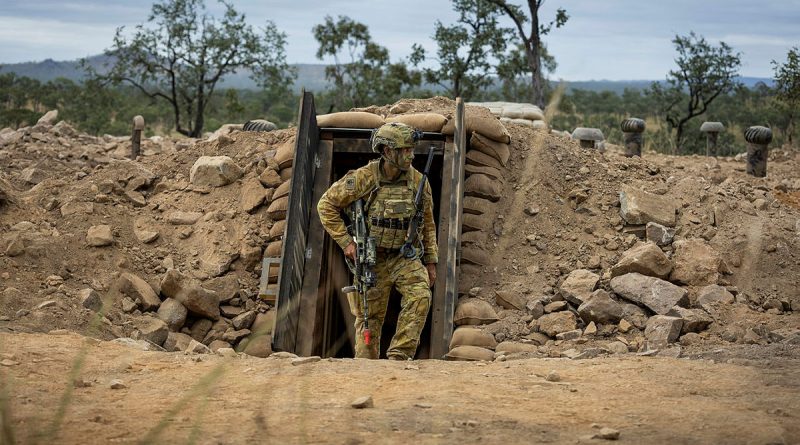

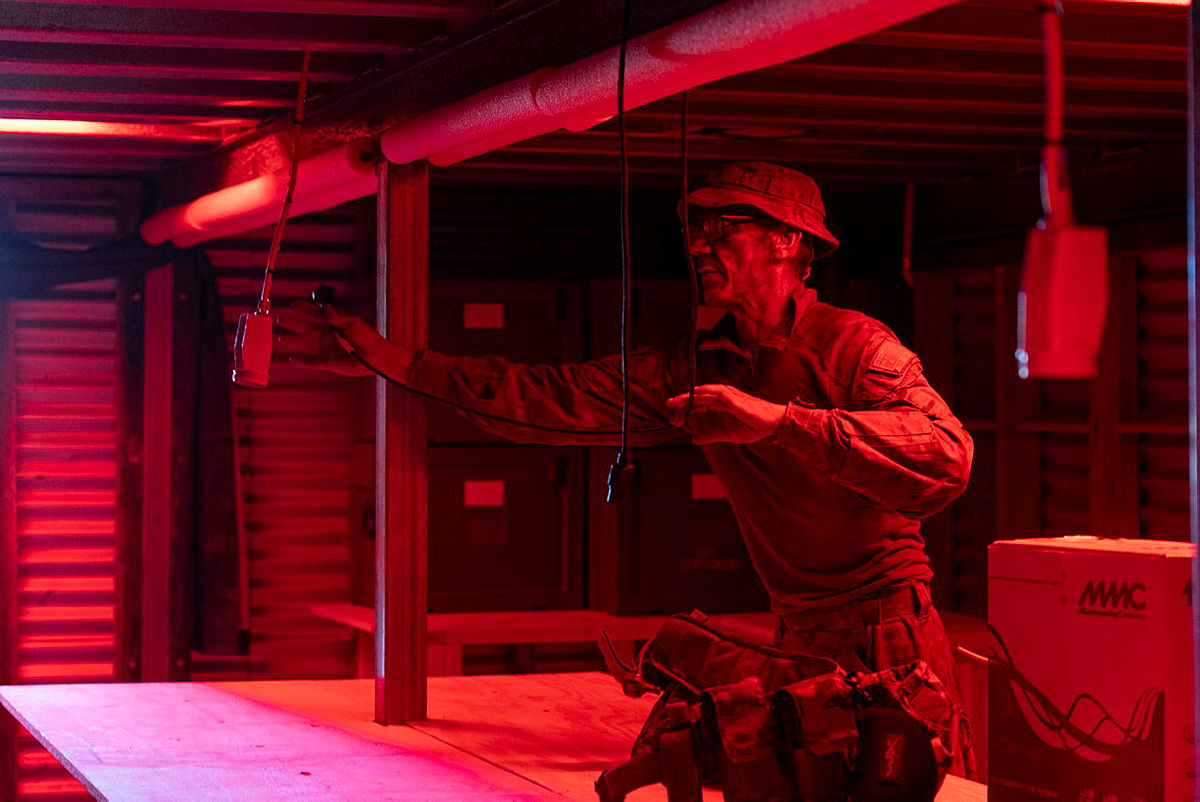
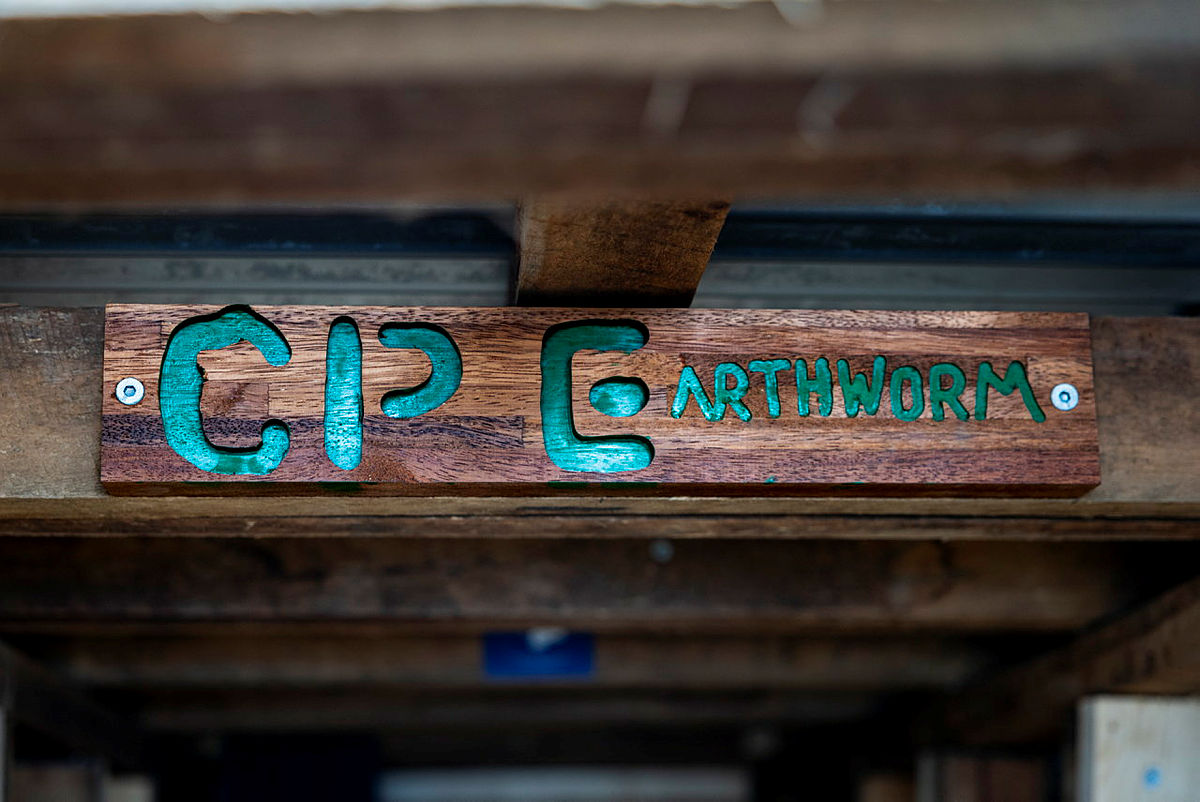
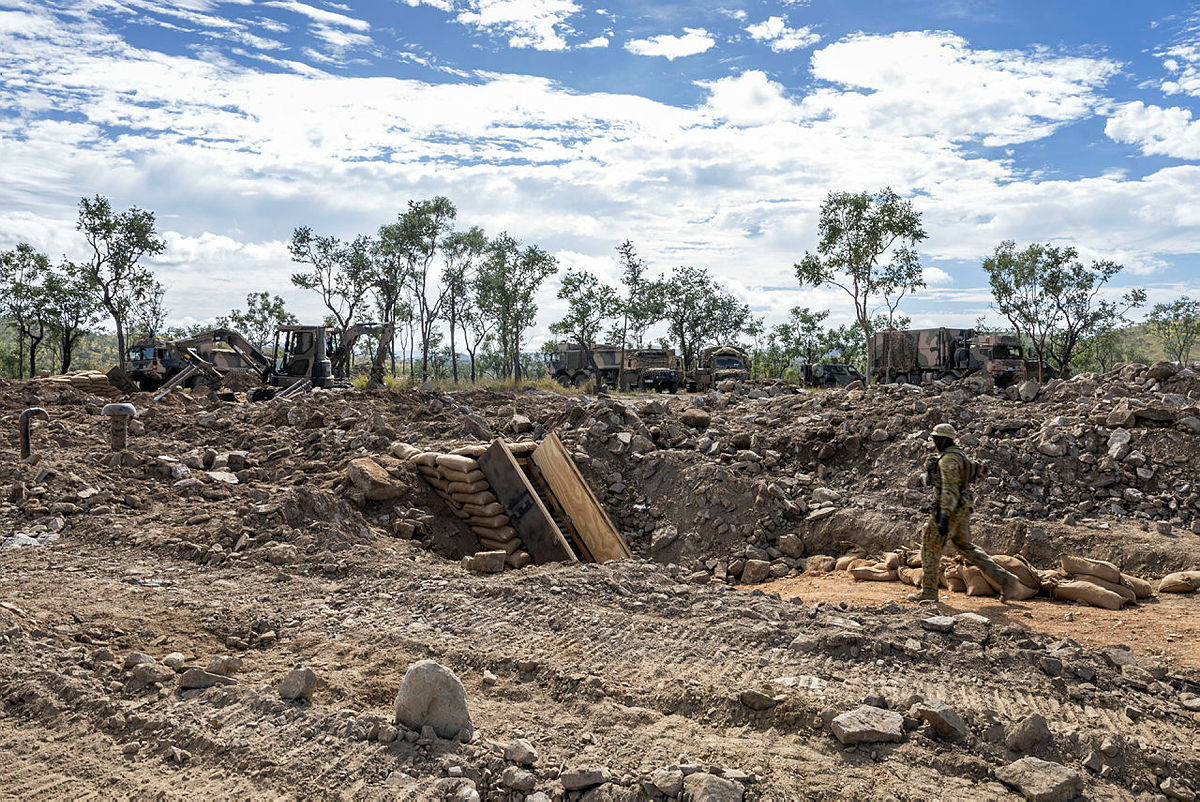
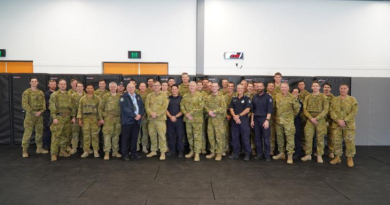
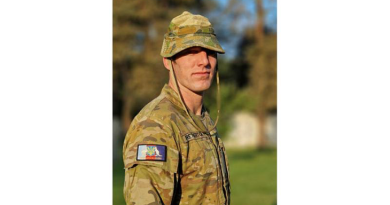
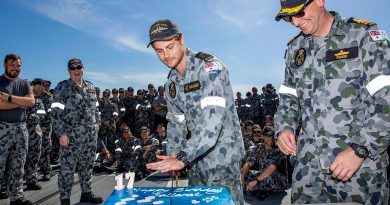
The dimensions of 40m by 20m seem rather large for a bunker. Should it read 40 by 20 feet?
We might have to rethink our bunker system in leu of the use of drones in a conflict. Ukraine’s army has demonstrated that they can fly them straight into bunkers, through windows etc.
It still goes hand in hand that RASIGS and RAE work so well. After all Signals Corps was created from the essence of the AEngrs in 1925.
Great job 3 BDE.